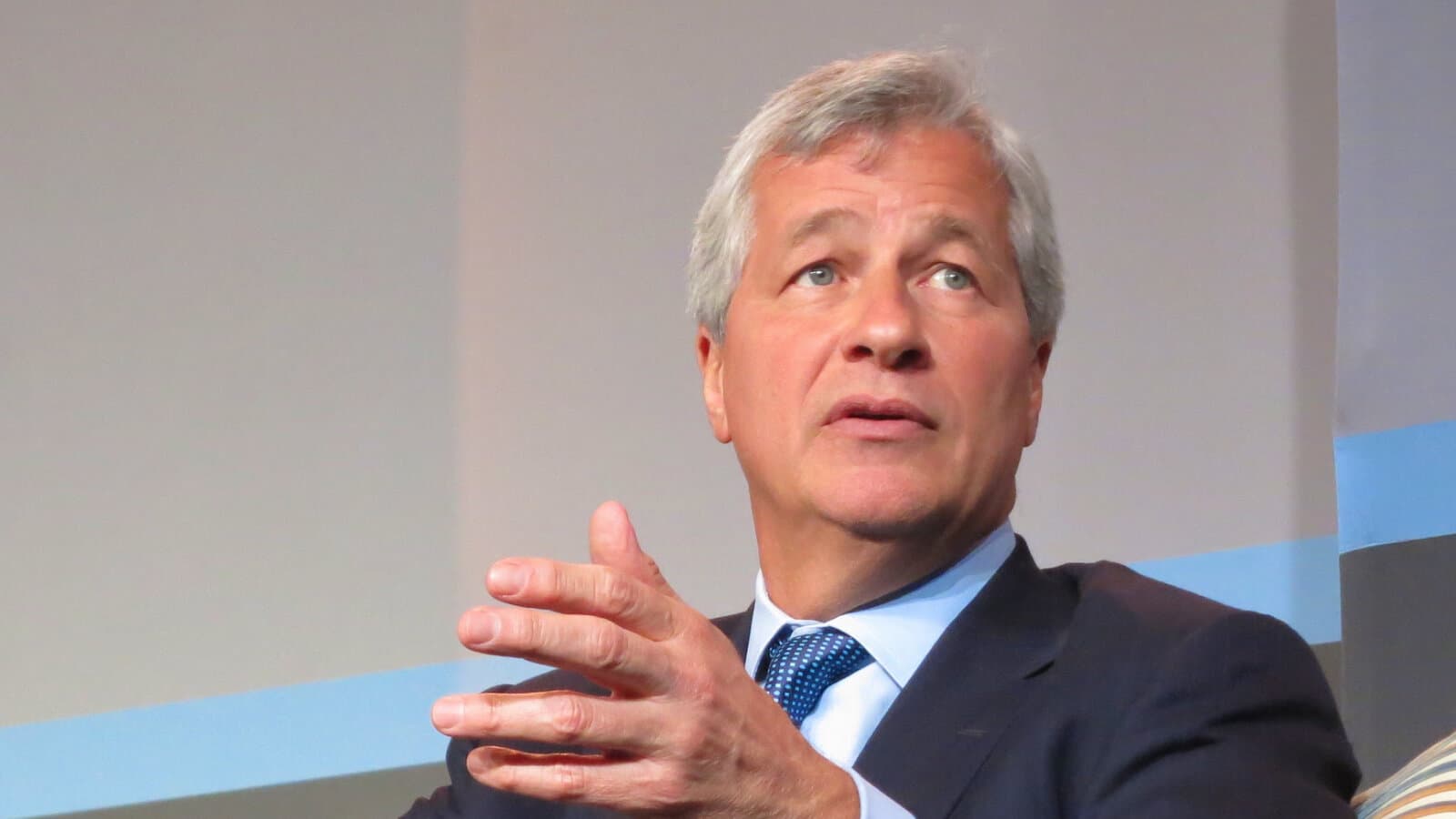JPMorgan Trade on Public Blockchain ‘Monumental Step’ for DeFi
JPMorgan, DBS and SBI Digital Asset execute live trade using DeFi, tokenized deposits and verifiable credentials

JPMorgan CEO Jamie Dimon | Source: Steve Jurvetson/"Jamie Dimon" (CC license)
JPMorgan has used the Polygon blockchain to trade tokenized cash deposits — the latest instance of banks moving into DeFi markets.
The trade occurred as part of the Monetary Authority of Singapore (MAS) Project Guardian pilot, first announced in May. The tokenization experiment completed trials for foreign exchange (FX) and the trading of government bonds, powered by crypto lending protocol Aave and decentralized exchange (DEX) Uniswap.
JPMorgan’s Onyx — the bank’s blockchain division for wholesale payments — joined Singapore’s DBS Bank, Japan’s SBI Digital, Singapore Exchange’s digital asset platform Marketnode and Temasek in the first phase of testing.
For FX transactions, Onyx successfully tokenized Singaporean dollar (SGD) deposits, as well as SBI Digital Assets tokenized Japanese yen (JPY) assets.
“[SGD] is a deposit token which is a general liability of JPM,” Ty Lobban, head of Onyx Digital Assets, tweeted, adding that the native token gives “stable on-chain value without the scalability issues of stablecoins.”
In the second trial, DBS and SBI Digital Assets traded against liquidity pools of tokenized government bonds with DBS tokenizing SGD currency and Singapore Government Securities bonds. SBI did the same for Japanese bonds and JPY currency.
The public trade marks a milestone for JPMorgan, which maintains three private blockchains used regularly by its businesses and clients.
The bank’s Liink network of banks shares transaction data and related insights, while its Coin Systems network facilitates the transfer of the dollar and other fiat currencies over a blockchain. Its Onyx Digital Assets network enables the tokenization of traditional assets, such as US Treasurys and money-market products.
“We’ve long held the view that over time more, and more traditional finance will take place on public blockchains, provided there are solutions for key aspects like scalability and privacy,” Lobban told Blockworks in a statement.
Aave Companies CEO Stani Kulechov called the blockchain trade “a monumental step forward for DeFi.”
Added Kulechov: “Utilizing the Aave protocol to deploy a liquidity market on the Polygon mainnet for supplying and borrowing tokenized foreign exchange transactions…is the first time the world has seen a real world use case for institutional-grade DeFi protocols.”
Lobban tweeted Polygon was chosen for the trade because they wanted to operate on Ethereum and “needed cheap gas fees.”
The team forked Aave Arc, a permissioned version of the popular DeFi lending protocol compliant with anti-money laundering regulations, and deployed a modified version to the Polygon network. This allowed the banks to set their own specialized transaction parameters.
Additionally, JPMorgan built on-chain verification of verifiable credentials (VC) to provide compliant access to Aave and other DeFi protocols. The aim was to eliminate DeFi front ends from needing to do know-your-customer (KYC) checks.
“On-chain VC verification is huge,” according to Lobban, because “it brings composability to identity…bringing further standardization & portability to identity.”
Banks are growing more comfortable with public blockchains
This is not the first time banks have used permissionless chains, as a number of traditional financial institutions have been exploring blockchain technology to improve efficiency.
The European Investment Bank (EIB) launched a digital bond issuance on a blockchain platform in April 2021, deploying this distributed ledger technology for the registration and settlement of digital bonds in collaboration with Goldman Sachs, Santander and Societe Generale.
That same month, Societe Generale issued the first structured product as a security token directly registered on the Tezos public blockchain — about two years after the company issued 100 million euros of covered bonds as a security token on the Ethereum blockchain.
Furthering the trend, JPMorgan Chase hired an executive director of digital assets regulatory policy last month, despite CEO Jamie Dimon calling crypto tokens “decentralized Ponzi schemes” in congressional testimony in September.
The bank’s blockchain trade also comes after JPMorgan published a video last month detailing a digital wallet that would allow users to control their digital identity and assets across platforms.
The company noted in disclaimers that the wallet is “a proof of concept” and that there is no guarantee the company would launch such a solution.
Fidelity Digital Asset Management Head Chris Tyrer said during a panel at Blockworks’ Digital Asset Summit last month that banks have come around on crypto over the past year and are “the future access points” for the market.
Previn Singh, head of Credit Suisse’s Distributed Ledger Technology Centre of Competency, added during the panel that traditional finance and blockchain technology are set to become interwoven over time.
“I think there’s this slightly cartoonish picture painted in regards to competition where it’s TradFi versus DeFi and never the two shall meet,” Singh said. “I’m really starting to think that will never be the case — there’s the best of both worlds that you can use.”
Get the news in your inbox. Explore Blockworks newsletters:
- The Breakdown: Decoding crypto and the markets. Daily.
- 0xResearch: Alpha in your inbox. Think like an analyst.






